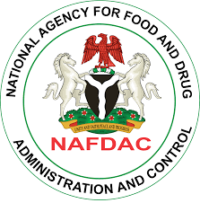Headlines
Antibiotics shortages as surging illnesses spur demand

Europe and North America have seen shortages of the key antibiotic amoxicillin and other medications as surging illnesses particularly among children have increased demand for the drugs.
Hospitals in many countries have come under pressure from a rising number of illnesses including what has been dubbed a “tripledemic” of Covid-19, influenza and the respiratory syncytial virus (RSV) which causes bronchiolitis.
But ramping up the production of antibiotics has proved difficult for drug makers, particularly for cheap generic medicines that offer a slender profit margin.
Here are some answers to key questions about the shortages.
– What and where? –
Amoxicillin is a member of the penicillins antibiotic family and is used to treat a range of bacterial illnesses, including chest and ear infections, often in children.
In France, the medicines regulator ANSM said last month that there are “strong supply tensions” for the version of amoxicillin most used by children, warning the situation could last until March.
Spain’s medicines agency also warned last month of potential amoxicillin shortages.
Germany, too, has sounded the alarm about shortages of a range of drugs including amoxicillin and other antibiotics.
Last week, the UK government issued “serious shortage protocols” for three penicillin-based antibiotics.
The move came after at least 19 children died from Group A Streptococcus (Strep A), amid reports that doctors and parents are struggling to find antibiotics to treat the illness.
Outside of Europe, amoxicillin has been on the US Food and Drug Administration drug shortage database since October.
The FDA told AFP that it “is currently working with the approved manufacturers and others in the supply chain”.
Other countries including Canada and Australia have also recently put amoxicillin on their list of drugs for which pharmacists are authorised to find substitute treatments.
– What is causing the shortages? –
Winter in the northern hemisphere has brought a particularly nasty influenza season as well as spikes in other viruses such as RSV. The surge comes after two years in which Covid measures such as quarantines, self-isolation and mask-wearing significantly decreased the rate of such illnesses.
Pharmaceutical companies who had cut back production because of the previously falling demand are now scrambling to meet skyrocketing orders, causing delays.
The producers of the drugs’ active ingredients have also struggled with shortages.
Sandoz, the generic drug division of Swiss pharmaceutical giant Novartis, told AFP that the “stock shortages at our competitors also contribute to the unexpectedly high sales of our drugs, and therefore to additional supply difficulties”.
– Sign of a wider problem? –
Antibiotics are old drugs whose patents have often fallen into the public domain, meaning that generic versions can be sold cheaply.
Drug makers, therefore, have a little monetary incentive to produce such antibiotics. Indeed, even generics producers can struggle to maintain a significant profit.
Thomas Borel, the scientific director at LEEM which represents French drug firms, said there had been insufficient investment from the industry “in view of the growing demand for this type of medicine”.
He added that the economic model makes it difficult for drug makers “to recover their costs” when it comes to antibiotics.
Another issue is that only around 10 firms, most of them in Asia, still produce the active ingredients for amoxicillin.
– Solutions? –
In the short term, national health authorities have recommended that pharmacists and doctors substitute the drugs in short supply with other medications whenever possible, as well as limiting treatment duration.
Manufacturers including Britain’s GSK have also ramped up production speed.
Sandoz said it has hired more staff and invested in upping production at its Kundl site in Austria.
More broadly, some industry specialists have called for a new business model that combines the needs of patients and those of the companies that produce such cheap drugs.
LEEM’s Borel said “the pharmaceutical industry must be considered to be a strategic sector in which public authorities must be more vigilant than they have been in recent years.”
Headlines
Noble Ladies Champion Women’s Financial Independence at Grand Inauguration in Abuja

Women from diverse backgrounds across Nigeria and beyond gathered at the Art and Culture Auditorium, Abuja, for the inauguration and convention of the Noble Ladies Association. The event, led by the association’s Founder and “visionary and polished Queen Mother,” Mrs. Margaret Chigozie Mkpuma, was a colourful display of feminine elegance, empowerment, and ambition.
The highly anticipated gathering, attended by over 700 members and counting, reflected the association’s mission to help women realise their potential while shifting mindsets away from dependency and over-glamorization of the ‘white collar job.’ According to the group, progress can be better achieved through innovation and creativity. “When a woman is able to earn and blossom on her own she has no reason to look at herself as a second fiddle,” the association stated.
One of the association’s standout initiatives is its women-only investment platform, which currently offers a minimum entry of ₦100,000 with a return of ₦130,000 over 30 days—an interest rate of 30 percent. Some members invest as much as ₦1 million, enjoying the same return rate. Mrs. Mkpuma explained that the scheme focuses on women because “women bear the greater brunt of poverty” and the platform seeks “to offer equity in the absence of economic equality.”
Education is also central to the Noble Ladies’ mission, regardless of age. Their mantra, “start again from where you stopped,” encourages women to return to school or upgrade their skills at any stage in life. The association believes that financial stability is vital in protecting women from cultural practices that dispossess widows of their late husbands’ assets, while also enabling them to raise morally and socially grounded families.
Founded on the vision of enhancing women’s skills and achieving financial stability, the association rests on a value system that discourages pity and promotes purpose. “You have a purpose and you build on that purpose to achieve great potentials and emancipation,” Mrs. Mkpuma said.
A criminologist by training and entrepreneur by practice, she cautions against idleness while waiting for formal employment. “There are billions in the informal and non-formal sectors waiting to be made,” she said, rejecting the “new normal of begging” and urging people to “be more introspective to find their purpose in life and hold on to it.”
Mrs. Mkpuma’s management style keeps members actively engaged, focusing on vocational skills and training to prepare them for competitive markets. She is exploring “innovative integration of uncommon technologies” and is already in talks with international franchises to invest in Nigeria, with Noble Ladies as first beneficiaries.
The association’s core values include mutual respect, innovation, forward-thinking, equal opportunity, and financial emancipation. With plans underway to establish a secretariat in the heart of Abuja, the group aims to expand its impact.
The event drew high-profile guests, including former Inspector General of Police, Mike Okiro, and a host of VIPs, marking a significant milestone in the association’s drive for women’s empowerment.
Headlines
NEPZA, FCT agree to create world-class FTZ environment

The Nigeria Export Processing Zones Authority (NEPZA) has stepped in to resolve the dispute between the Federal Capital Territory Administration and the Abuja Technology Village (ATV), a licensed Free Trade Zone, over the potential revocation of the zone’s land title.
Dr. Olufemi Ogunyemi, the Managing Director of NEPZA, urged ATV operators and investors to withdraw the lawsuit filed against the FCT administration immediately to facilitate a roundtable negotiation.
Dr. Ogunyemi delivered the charge during a courtesy visit to the Minister of the Federal Capital Territory, Barrister Nyesom Wike, on Thursday in Abuja.
You will recall that the ATV operators responded to the revocation notice issued by the FCT administration with a lawsuit.
Dr. Ogunyemi stated that the continued support for the growth of the Free Trade Zones Scheme would benefit the nation’s economy and the FCT’s development, emphasizing that the FCT administration recognized the scheme’s potential to accelerate industrialisation.
Dr. Ogunyemi, also the Chief Executive Officer of NEPZA, expressed his delight at the steps taken by the FCT minister to expand the economic frontier of the FCT through the proposed Abuja City Walk (ACW) project.
Dr. Ogunyemi further explained that the Authority was preparing to assess all the 63 licensed Free Trade Zones across the country with the view to vetting their functionality and contributions to the nation’s Foreign Direct Investment and export drives.
“I have come to discuss with His Excellency, the Minister of the Federal Capital Territory on the importance of supporting the ATV to succeed while also promoting the development of the Abuja City Walk project. We must work together to achieve this for the good of our nation,” he said.
On his part, the FCT Minister reiterated his unflinching determination to work towards President Bola Ahmed Tinubu’s Renewed Hope Agenda by bringing FDI to the FCT.
“We must fulfil Mr. President’s promises regarding industrialization, trade, and investment. In this context, the FCT will collaborate with NEPZA to review the future of ATV, a zone that was sponsored and supported by the FCT administration,” Wike said.
Barrister Wike also said that efforts were underway to fast-track the industrialisation process of the territory with the construction of the Abuja City Walk.
The minister further said the Abuja City Walk project was planned to cover over 200 hectares in the Abuja Technology Village corridor along Airport Road.
According to him, the business ecosystem aimed to create a lively, mixed-use urban center with residential, commercial, retail, hospitality, medical, and institutional facilities.
He added that the ACW would turn out to be a high-definition and world-class project that would give this administration’s Renewed Hope Agenda true meaning in the North-Central Region of the country.
Barrister Wike also indicated his continued pursuit of land and property owners who failed to fulfil their obligations to the FCT in his determination to develop the territory.
Headlines
Benue IDPs block highway, demand return to ancestral homes

Vehicular movement along the Yelwata axis of the Benue–Nasarawa highway was brought to a standstill on Wednesday as Internally Displaced Persons, IDPs, staged a protest, demanding immediate return to their ancestral homes.
The protesters, believed to be victims of persistent attacks by suspected herdsmen, blocked both lanes of the busy highway for several hours, chanting “We want to go back home”.
The protest caused disruption, leaving hundreds of motorists and passengers stranded.
Eyewitnesses said the displaced persons, many of whom have spent years in overcrowded IDP camps, are expressing deep frustration over the government’s delay in restoring security to their communities.
“We have suffered enough. We want to return to our homes and farms,” one of the protesters told reporters at the scene.
Security personnel were reportedly deployed to monitor the situation and prevent any escalation, though tensions remained high as of press time.
Efforts to reach the Benue State Emergency Management Agency, SEMA, and other relevant authorities for comment were unsuccessful.
-

 Headlines4 years ago
Headlines4 years agoFacebook, Instagram Temporarily Allow Posts on Ukraine War Calling for Violence Against Invading Russians or Putin’s Death
-

 Headlines4 years ago
Headlines4 years agoNigeria, Other West African Countries Facing Worst Food Crisis in 10 Years, Aid Groups Say
-

 Foreign4 years ago
Foreign4 years agoNew York Consulate installs machines for 10-year passport
-

 News1 year ago
News1 year agoZero Trust Architecture in a Remote World: Securing the New Normal
-

 Entertainment3 years ago
Entertainment3 years agoPhyna emerges winner of Big Brother Naija Season 7
-

 Headlines2 years ago
Headlines2 years agoNigeria Customs modernisation project to check extortion of traders
-

 Entertainment2 years ago
Entertainment2 years agoMovie download platform, Netnaija, announces closure
-

 Economy2 years ago
Economy2 years agoWe generated N30.2 bn revenue in three months – Kano NCS Comptroller














